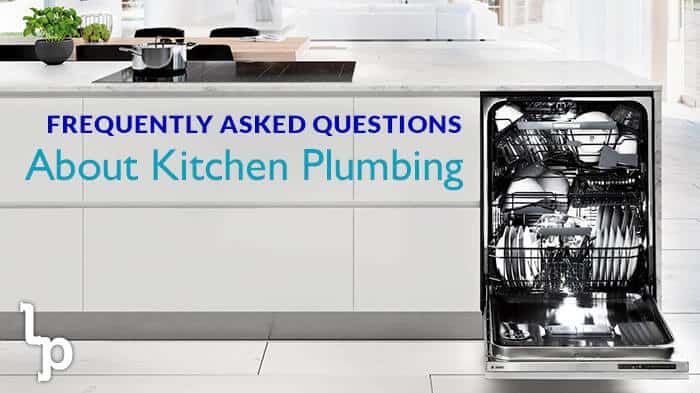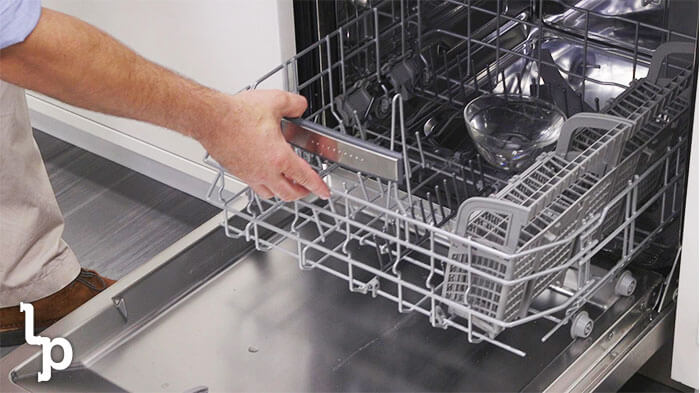
The kitchen.
For many it’s the heart of the home.
“Kitchen Parties” are all the rage in eastern Canada.
It’s where people come together over food.
And it’s important to keep it running smoothly.
From the dishwasher to the garbage disposal, making sure kitchen plumbing repairs and installations are done right is very important to keep things on-track.
Having issues with your appliances?
Dishwasher not getting the job done as well as it once was?
And why is the garbage disposal always getting clogged?
Keep reading for simple solutions to common problems.
Can I Use a Drain Cleaner In a Sink with a Garbage Disposal?
The short answer is: It depends.
Garbage disposal repair can be costly, and using the wrong substances in it can cause a break down.
Harsh chemicals in many drain cleaners can be damaging to the garbage disposal.
Look for cleaners which are marked safe for drains, and avoid bleach.
How Do I Clean the Dishwasher?
Keeping your dishwasher clean is just as important as keeping your dishes clean, since food and soap scum can accumulate overtime, creating a breeding ground for bacteria.
There are a few steps you can take to clean your dishwasher and make sure it’s ready to keep your dishes as clean as possible:
1. Clean the drain, by removing the bottom rack of the dishwasher and clearing out any food or other sediment which may have become stuck.
2. Put a dishwasher-safe cup or bowl filled with vinegar on the top rack of your empty dishwasher and run a cycle, the vinegar will remove stains and odors.
3. Spread baking soda on the bottom of the dishwasher and run a hot water cycle.
What Should I Do With Oil From The Deep Fryer?
You’ve probably heard about how eating too much oily food will clog your arteries.
Putting oil down the drain has the same effect on household pipes.
Cooking fats and oils can build up on the walls of your pipes over time, and cause clogs and backups.
Here are some options for what to do with it instead:
1. Bottle It
Make sure the oil has cooled down, and transfer it into a suitable container, with a lid.
You can just use an old tin can or glass jar for this.
Storing it in the freezer makes sense too, since the oil will solidify and you won’t have to worry about a jar of liquid oil sloshing around and potentially making a mess.
Once your jar is full, drop it off at an Orange Drop site – find the one closest to you on their website
2. Recycle It
Green Oil Inc is a Toronto-based company that accepts cooking oil donations from people in Southern Ontario to process it into biodiesel and other green energy endeavours.
Find out more about how you can donate them your used cooking oil at their website here.
Does the “Economy” Setting on My Appliances Really Save Me Money?
Save the planet!
It’s something everyone is talking about these days, and how we use our appliances is no exception.
Most newer appliances have an “eco-setting” which uses less electricity and less water to run.
But sometimes the eco-setting means the efficiency of the appliance is also reduced.
So if using the eco-setting on your dishwasher means you’ll have to re-wash everything, how much energy and money are you really saving?
This one is a matter of looking at your appliances, and determining which one is right for you.
If the eco-setting works just as well, then great.
But if the eco-setting means you need to spend time re-doing the job of the dishwasher?
Maybe you’re not saving that much after all.
How do you get rid of fruit flies in the drain?
Ah summer.
Hot days, warm nights, visits to the beach, and fruit flies in the kitchen.
If you’ve ever dealt with these pest you know how persistent and annoying they can be.
If the trap under your sink dries out or is cracked, and there is no water seal, this dark, space creates the perfect breeding ground for fruit flies to multiply.
If you’re experiencing this issue, pour hot water down the drain to flush them out, and treat with bleach to kill the eggs.
If the flies persist there may be something wrong with your trap or drain-line.
How do I fix a clogged garbage disposal?
There are a number of ways a garbage disposal can become clogged.
Did you drop a fork in there, not use enough water, or try to pack in too much food?
Whatever it was, it’s important to clean it out properly so you don’t cause any damage to it.
First of all, never use chemical drain cleaners in the garbage disposal.
The can cause corrosion and will damage and plastic or rubber parts.
Using a plunger, push the clog past the disposal, and then flush it out with water.
If there is a jam in the disposal, be sure to cut off all power to the unit before attempting to un-jam it.
Turn off the power, and the breaker switch it’s attached to.
Use a flashlight to look and see if you can see the offending object, and remove it with pliers, not your hands.
To prevent clogs in the future, never put chicken bones, corn on the cob or fruit pits down the disposal.
And always flush it out well with water.
Contact London Plumbing
Do you have a pressing kitchen question you need answered?
Tried to clear out your garbage disposal but not having much luck?
Or maybe a fruit fly problem you can’t quite get rid of on own?
Call us at London Plumbing, and bring in the pros to help with all your kitchen plumbing issues.



